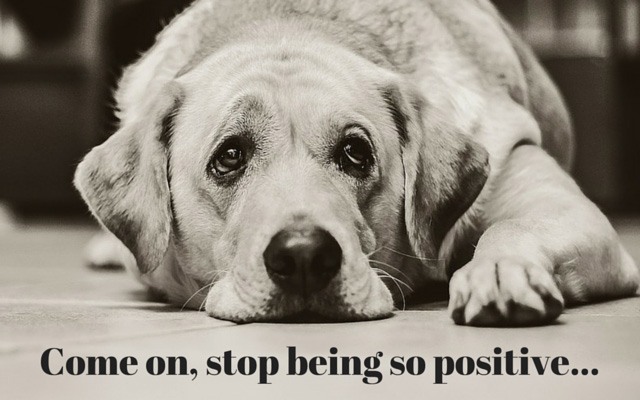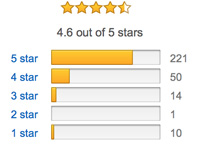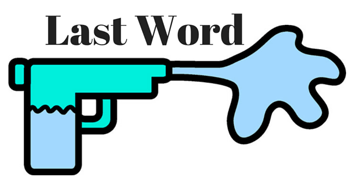If you think receiving a negative comment on your blog is a dreadful experience, believe me it's not. It's actually completely opposite. How you respond to negative comments can define your skill as a professional blogger. You would always respond positively, right? Your blog is your brand, therefore you don't want to fight against your readers. But there's no way you should feel discouraged by any criticism coming along to you. The key is to "control" the conversation.

Unless of course, you receive malicious recurring "bombs" by crazy people, or totally unrelated spam, in which case you can ignore and delete. Your anti-spam filter plugin allows you to approve or disapprove the comments, and you can also stop them by blocking their IP address if those "bad" comments appear to come from the same desktop.
Otherwise negative comments are "good" comments and can be treated wisely. I'll show you how.
People Pay More Attention To Bad News

My best friend is an experienced online tutor. She teaches IT stuff online, speaks to a webcam and exchanges personal comments with each and every student after the lesson. She tells me the key is to focus on their weaknesses, but always with a positive approach and adequate level of backup. Not just to systematically point out the student's strengths and the areas of improvements... What the hell does that mean?
The students pay tuition fees in order to improve their knowledge and skills, right? They are all willing to know what they're doing wrong right now, more or less. They should be.
However people psychologically tend to pay attention to bad news more than good news. If my tutor friend simply said to a student "You're doing this wrong, this is how you fix it. But you're doing that great, well done", the student would tend to take her comment fairly negatively, hence this approach could actually demotivate some of them.
As a teacher, to share a knowledge is one job, but to keep motivating the students is another. Instead of saying to a student "you were doing this wrong", there are many positive ways to remind them, you know? She would say something as if it was "great" to be able to find out their weakness. "We're in this together, let's work on it" approach, perhaps? And always end with a positive note.
Well, my friend's example is an educator-learner relationship. So how does that apply to not-so-nice comments left on your blog? How can we make a positive response to negative comments?
Can You Control Your Audience? No.
We all agree that responding angrily to an angry comment is not the way to put your business forward, right? Why would you scare other readers away - they might see you as a feisty, interesting blogger but would they trust your business? They'd rather avoid contact with aggressive dealers.
As I mentioned earlier, people psychologically tend to pay more attention to negatives. Meaning one unhappy comment or bad review of your site can potentially harm your reputation. The last thing you want to do is to approve such comments AND not bother to reply.
Then that leaves you with two more options; disapprove such comments and delete, or respond with your heart and soul and offer a solution to the unhappy commenter.
Deleting nevagive comments one by one just because you don't like them, is not a sustainable option to move your site forward as a brand. You're not Darth Vader, you cannot control what your audience will say. But you can control how you react to them.
Help Unhappy People
This is a comment I received a while ago at one of my other sites. It was about herbal diet pills I was promoting, I had tried them myself, very popular at Amazon with overall rating of 4.6/5.
If you think these products create dependency why do you recommend? Your advice is contradictory just like any other health product sites, I think it’s wrong to sell diet pills anyway, I don’t trust them but thanks.

It's not that my advice in the article was contradictory or inconsistent. It was a product review, I had to list up Pro's and Con's. When I tried the pills myself, my appetite initially disappeared, but gradually came back over the course of a month. So I mentioned a possibility of dependence in the article. Recommended for an initial quick-fix, but not recommended as a long-term use.
- Is this comment negative? Yes, the context is.
- Will this comment give a bad effect to my business? Potentially yes, if left alone.
- Is this commenter being unfair? Not really.
We've all seen "miracle" diet pill adverts many times. And we know there's no such thing. Maybe the commenter has tried many slimming pills in the past and none of them has worked. He has every right to express his doubts and deny all kinds of diet products.
So this is a great opportunity to draw attention to my business's positive qualities. Our businesses are to give solutions, to make unhappy people happy, remember?
Say Sorry and Clear the Confusion
It's important to say sorry. Not in the sense of apology. Sorry that the commenter feels that way, sorry that they may have had a bad experience, sorry for the frustrations. And it's important to say why you understand their pain.
The example comment above actually consists of a few elements, and if I actually break it down, I can say quite a few things.
If you think these products create dependency why do you recommend?
He's asking me a question that I need to answer to. "Sorry that you're confused, it's not my fault you read my sentences wrong"... How can I say it like an angel?
I'm sorry for the confusion, I'd recommend these pills for a short-term use because they have actually worked on me. While I genuinely believe so, as I mentioned in the article I am hesitant to recommend it to anyone as a permanent solution because of the risk of dependency.
Does that sound fair?
Your advice is contradictory just like any other health product sites.
Now he doesn't think I'm making sense, and he thinks all the medical sites are telling rubbish too. So I can tell him I understand why he's in such a position. I'm in the same place as his, and I am as sceptical as anyone can be, too. Particularly when it comes to health issues there is no product in the market that I can recommend 100% offhandedly.
I think it’s wrong to sell diet pills anyway, I don’t trust them but thanks.
Now I'm entering a "there's no right or wrong" zone, where this man insists it's wrong. But he's left it there abruptly without telling a valid reason.
What I can do is to value his opinion, and try to guess where it's coming from. It's easy with this case; the best way to lose weight is of course, to eat healthy and get some exercise, right? Every other method is unnatural. The fact that there is somebody who so boldly refuses to trust any diet pills (which is great to know!) who's actually bothered to leave a comment - although in a negative way. I can appreciate that. I must, appreciate that.
You Have The Last Word

Will I be able to turn this man into a happy customer? Probably not, not in this case. The chances are that he'll never come back. But other potential customers will read the conversation, other readers may share it on social media too.
This particular product has good reviews on Amazon and I have tried it myself. While I could "understand" his point of view, it would be harder to prove his statement than to prove mine.
I have the last word. It's my website, I always have the final word, I've been polite enough to this man, now I gotta be persistent. Unless there's a new discovery and I have changed my mind... This product - is - good!
Positive Response To Negative Comments
And I'm pleased to tell you that, this particular commenter actually did come back a few days later to leave another message. Thanks. Yes that's all he said, just thanks. But you can imagine how genuinely happy I was to know that he had actually read my response. A negative comment worth fighting against, you know?
So remember, you can never control what your audience will say or do. But you can control how you react to them in order to build your brand.
You cannot control what your audience will say or do. But you can control how you react to them.

You have some great points here and you are right when you say that there is a right and wrong way to respond to these comments.
Try to see the other persons point of view when responding and make sure to answer them. Sometimes a negative comment will help to improve yourself and your work, thus making your blog more successful in the long run.
Hi Michel, thanks for your “great comment”! Yes you’re absolutely right, a lot of negative comments have actually helped improve my websites over the past years, and I’m sure they’ll continue to. Thanks again for your input.